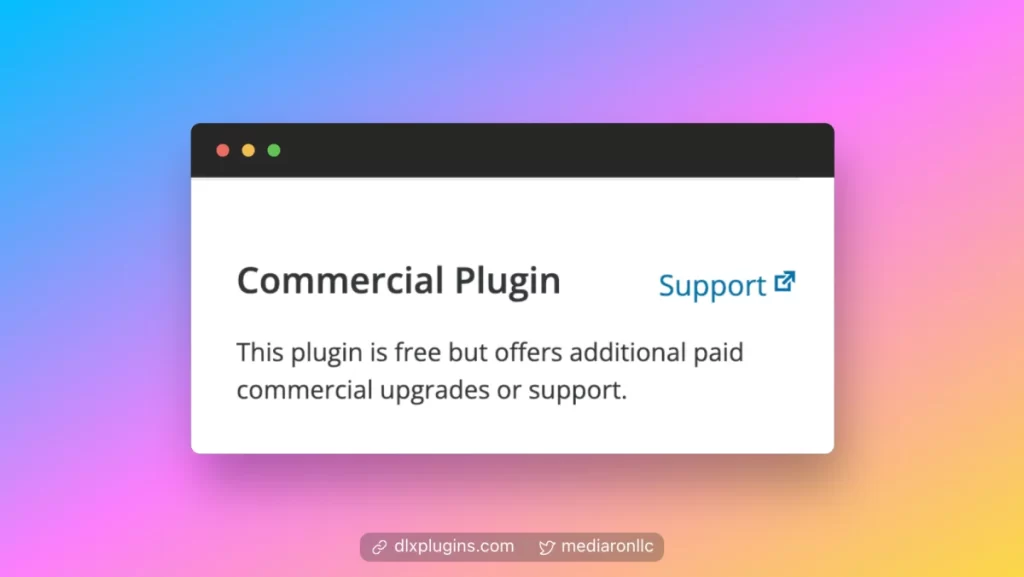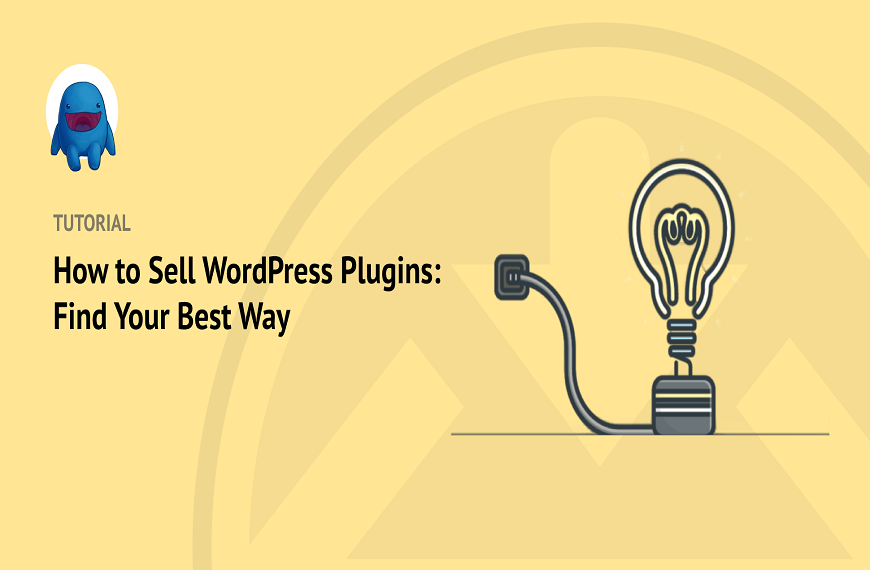WordPress Commercial Plugin
WordPress.org has recently introduced a new categorization for free plugins that offer paid enhancements or supplementary features, labeling them as “Commercial Plugins.”
The term WordPress “Commercial Plugin” signifies that while the core plugin is free to use, there are supplementary features or upgrades available for purchase, akin to a freemium model.
When you browse the WordPress.org plugin repository and access a plugin offering paid upgrades or additional features, you’ll notice the “Commercial Plugin” label, accompanied by a brief description stating, “This plugin is free but offers additional paid commercial upgrades or support.” Additionally, a link will be provided that directs you to the plugin’s support page, as depicted in the featured image above.
It’s important to note that this label is not currently applied to all plugins that offer paid enhancements. If you wish to have this notice displayed for your plugin, you can reach out to WordPress.org via email at plugins@wordpress.org. In the future, WordPress plugin developers will have the capability to incorporate this label into their plugins themselves.
The primary objective of this label is to assist users in distinguishing whether a plugin is entirely free or if it includes additional features that require payment. It also provides guidance to users seeking support for questions related to paid features.
Furthermore, WordPress Themes will also receive a similar label to indicate whether they are community-supported or commercial in nature.
Commercial plugins refer to WordPress plugins that offer paid upgrades or premium features in addition to their free versions. These plugins are developed by third-party developers or companies and are available for download and installation from the WordPress Plugin Directory or other marketplaces.
Here are some key points about commercial plugins:
- Paid Upgrades: Commercial plugins typically offer additional features, functionalities, or support options that are not available in the free version. Users can choose to upgrade to the premium version of the plugin by purchasing a license or subscription.
- Advanced Features: The premium versions of commercial plugins often include advanced features or capabilities that cater to the needs of users with more demanding requirements. These features may include enhanced customization options, advanced integrations with third-party services, or priority support from the plugin developer.
- Support and Updates: Commercial plugins usually come with dedicated support services and regular updates to ensure compatibility with the latest versions of WordPress and other software components. Users who purchase a premium license or subscription are entitled to receive technical assistance and access to updates for the duration of their subscription period.
- Licensing and Pricing: Commercial plugins are typically distributed under proprietary licenses that govern their usage, distribution, and modification. Developers may offer different pricing models for their commercial plugins, such as one-time purchases, annual subscriptions, or lifetime licenses, depending on the plugin’s features and the level of support provided.
- Marketplaces and Platforms: Commercial plugins are available for purchase from various marketplaces and platforms, including the official WordPress Plugin Directory, third-party marketplaces like CodeCanyon, and developers’ own websites. Users can browse these platforms to discover and purchase commercial plugins that meet their specific requirements.
- Quality and Reliability: Commercial plugins are often developed and maintained by professional developers or companies with a vested interest in providing high-quality products and services. Users can expect commercial plugins to undergo rigorous testing, adhere to coding standards, and comply with security best practices to ensure their reliability and stability.
- Customization and Integration: Commercial plugins may offer customization options or integration capabilities that allow users to tailor the plugin to their unique needs and integrate it seamlessly with other software solutions or platforms. This flexibility makes commercial plugins suitable for a wide range of use cases and industries.


